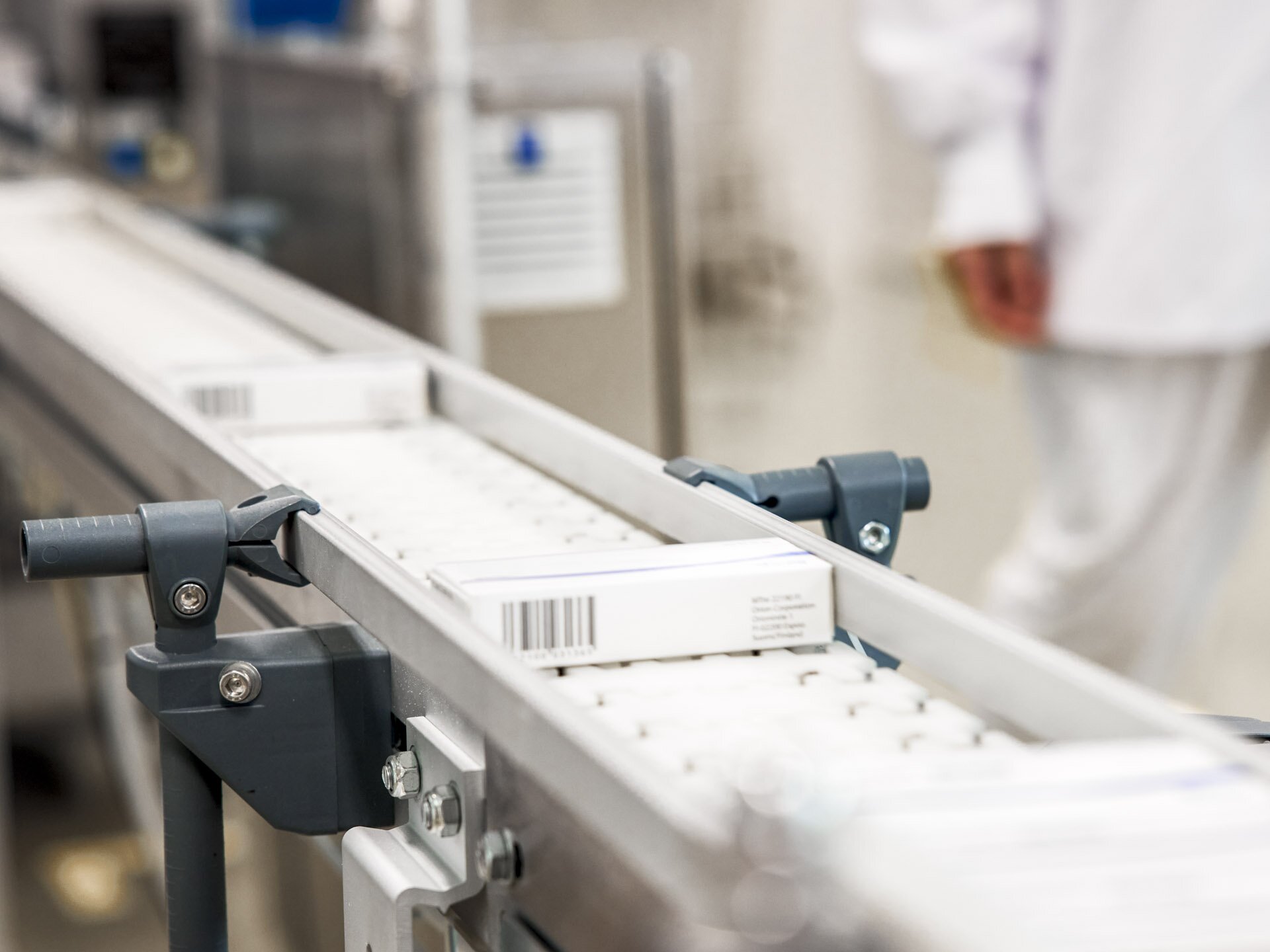1. Medicine packages are a major burden on the environment.
Fiction. The environmental load of medicine packaging is small, and relatively speaking the environmental footprint of medicine packaging is very small. However, the quality of packaging plays a big role in the shelf life of a medicinal product. This is why it is more than just a piece of waste: it protects the product against light, damage during delivery, oxygen and microbes.
2. Medicine packages can be recycled.
Fact. Most of Orion’s medicine packages are recyclable. The exception is packages and containers with medicine or cream left in them.
Medicines should never be washed down the drain or thrown out into the environment or mixed waste. Collect medicine packages with medicine in them in a plastic bag and take them to a pharmacy for disposal.
Tablets and capsules sold in glass and plastic containers should be disposed of in their original packaging. Pack them separately in a clear plastic bag and take them to a pharmacy. Blister packages can be taken to the pharmacy as they are.
Vitamins, food supplements, basic creams and cosmetics are not hazardous waste so they can be disposed of in normal household waste.
3. It is difficult to know how the different packaging materials should be sorted.
Fact, definitely – which is why we have compiled a short checklist to make recycling easier:
- aluminium caps: metals
- plastic containers and caps: plastics
- cartons: cardboard and paperboard
- package inserts: paper
- glass bottles: glass
- Blister packages with foil top and base: metals
- Layered materials and blister packages with plastic top and foil base: mixed or energy waste
4. An plastic medicine container is useless when empty.
Fiction. Orion’s plastic containers can be recycled. The industry uses them as secondary raw-material.
Orion’s plastic medicine and food supplement packages recycled in plastics will end up at Fortum, where they are sorted, cleaned and melted, after which the mass is granulated. Granulated plastic containers are manufactured into plastic beads which are again made into new plastic products.
Orion’s plastic medicine containers may have a second life as a flower pot or dish brush.
5. Many of the medicine packages end in landfills.
Fiction. Nine packages out of ten are upcycled while the packages disposed of as mixed waste can still be used as energy waste. Energy waste is incinerated and the generated heat is used for district heating, for example.
6. Package instructions are not always clear about recycling.
Fact to some degree. Many medicine packages have clear recycling instructions but unfortunately not all. The challenge is the small size of the packaging – and statutory medical information must take priority.
We at Orion have taken notice of this and have launched a project to improve the quality of recycling instructions on our packaging.
As a first step, we have provided detailed recycling instructions for all our packaging materials on our website.
7. Optimised package sizing reduces medicine residues in the environment.
Fact. The more medicines are thrown away, the more likely it is that some residue will end up in the natural environment at some stage. Medicine waste is created if, for example, a patient does not complete the course of antibiotics they have been prescribed. Some users don’t take expired or unused medicines to the pharmacy as they definitely should, and instead pour them down the drain or flush them down the toilet. As a result, medicine residues will find their way into waste water.
Selling medicines in appropriately sized packages makes it more likely that consumers will complete the prescribed courses and that empty containers and cartons will be sorted correctly.
Medicines do not belong in the natural environment, which is why Orion supports the work of the John Nurminen Foundation in the preservation of the Baltic Sea. The collaboration aims at minimising the amount of medicine residues discharged into the Baltic Sea.
Orion also offers training for healthcare professionals regarding package sizes: it is recommended to start a new course of medication with a small package and only increase the prescription if the medication proves suitable for the patient.
The experts interviewed for this article were Orion's packaging specialists Elli Kultanen and Hanna Bruun.











